Muhawwil (Transformer)
From January 18 to February 18, 2017
Exhibit Opening
January 18, 2017 at 6pm
Curator(s)
Maysaa Al-Mumin
Artist(s)
Monira Al Qadiri
Location
The Gallery at VCUarts Qatar
Acknowledgment
AFAC, The Arab Fund for Arts and Culture
Image caption: Monira Al Qadiri, ‘Monira Al Qadiri, ‘Muhawwil (Transformer)’, Video installation, 2014, ©Monira Al Qadiri
Monira Al Qadiri’s Muhawwil (Transformer) is a four-channel video installation based on Islamic figurative murals on electric power stations throughout Kuwait. These murals mark a transformation in religious discourse within Gulf societies: where once only calligraphic depictions of this nature were allowed, today’s pop-culture and the mass-production of images have forced conservative entities to reconsider this tradition and adopt a mutated technique to convey moral advice in the form of wall paintings. This project reconstructs these paintings into animations, so as to highlight the dilemma of representation that exists between the ancient and modern.
Monira Al Qadiri is part of the artist collective GCC; she will be participating in Tasmeem Doha 2017, VCUarts Qatar’s biennial art & design conference.

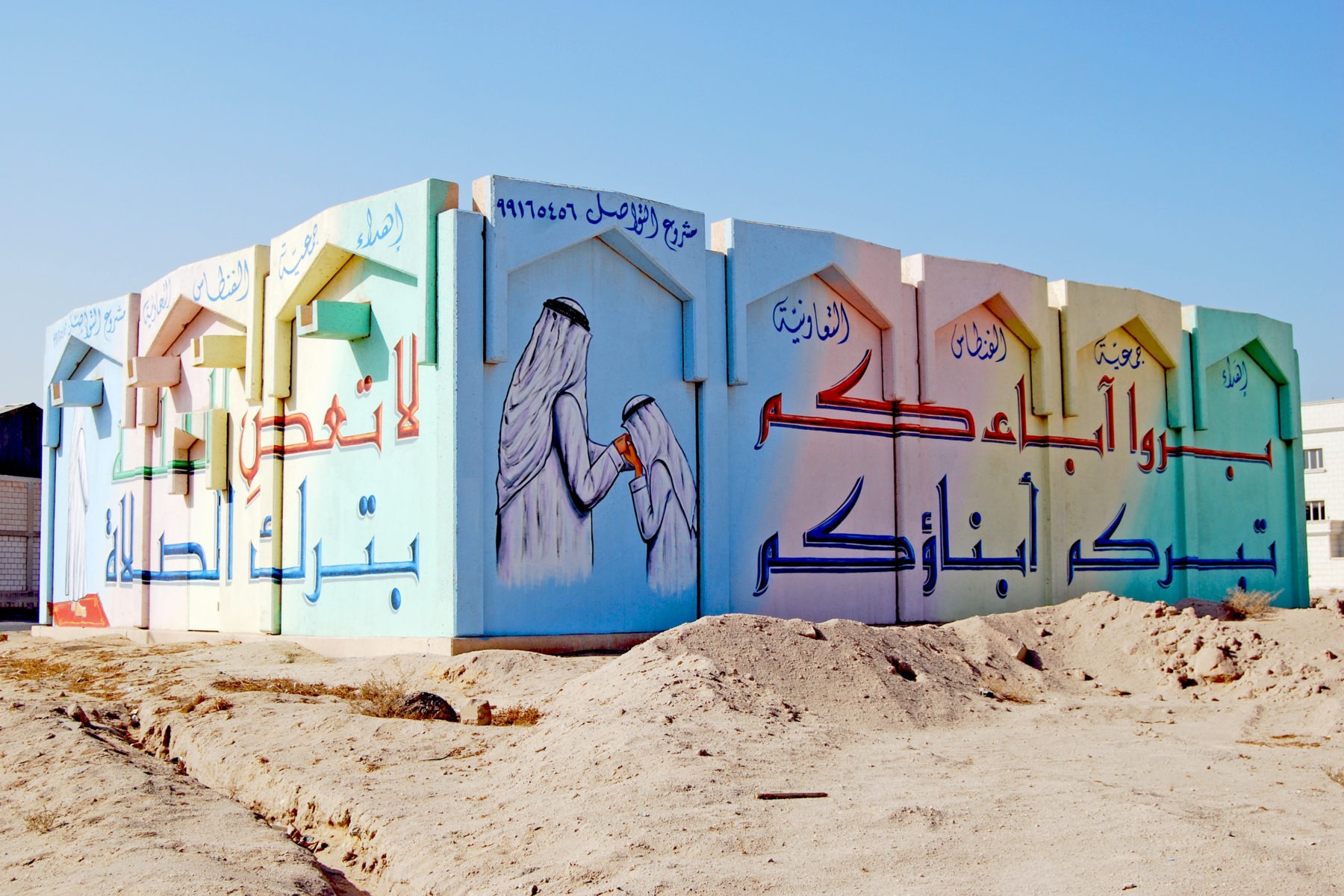
Curator statement
By Maysaa Al-Mumin, VCUarts Qatar Assistant Professor, Art Foundation
A widely exhibited Kuwaiti artist, much of Monira Al Qadiri’s artworks are initiated by her site-specific social observations. Her regard for the commonly unremarkable often presents insights into the shifts and contrasts of social modes.
The sidelined and overlooked architecture of city service facilities feature as the catalyst for her piece Muhawwil (Transformer).
The electrical transformer station (Muhawwil) is an inconspicuous local neighborhood landmark that is common in Kuwait and throughout the Gulf countries. They are housed in small concrete and brick buildings in towns and cities.
Until relatively recently in Kuwait, these buildings were seen as loitering spots for truants seeking shade from the midday sun and as a location for acts of small mischief by young people.
Their walls were regularly covered in graffiti which gave some of these buildings and locations negative reputations. In a country where the dominant mode of transport is the car, the buildings were often unnoticed by drivers passing by, but were an important part of the local geography for many pedestrians who used them as
local waypoints.
In Muhawwil, Monira reflects on the recent trend of local Islamic charity houses partnering with neighborhood Co-ops to take on the responsibility of turning these buildings into beacons of morality by using rudimentary art to call for piety and decency.
In her research of this phenomenon, Monira has documented more than 120 of these buildings and their naive art, and by mapping their locations, and gathering information on them, is adding another layer of information on the city and its surroundings and changing cultures. These service buildings are taking on an alternative social responsibility role, becoming a colorful means of sanitizing what were once seen as sites of immorality and delinquency.
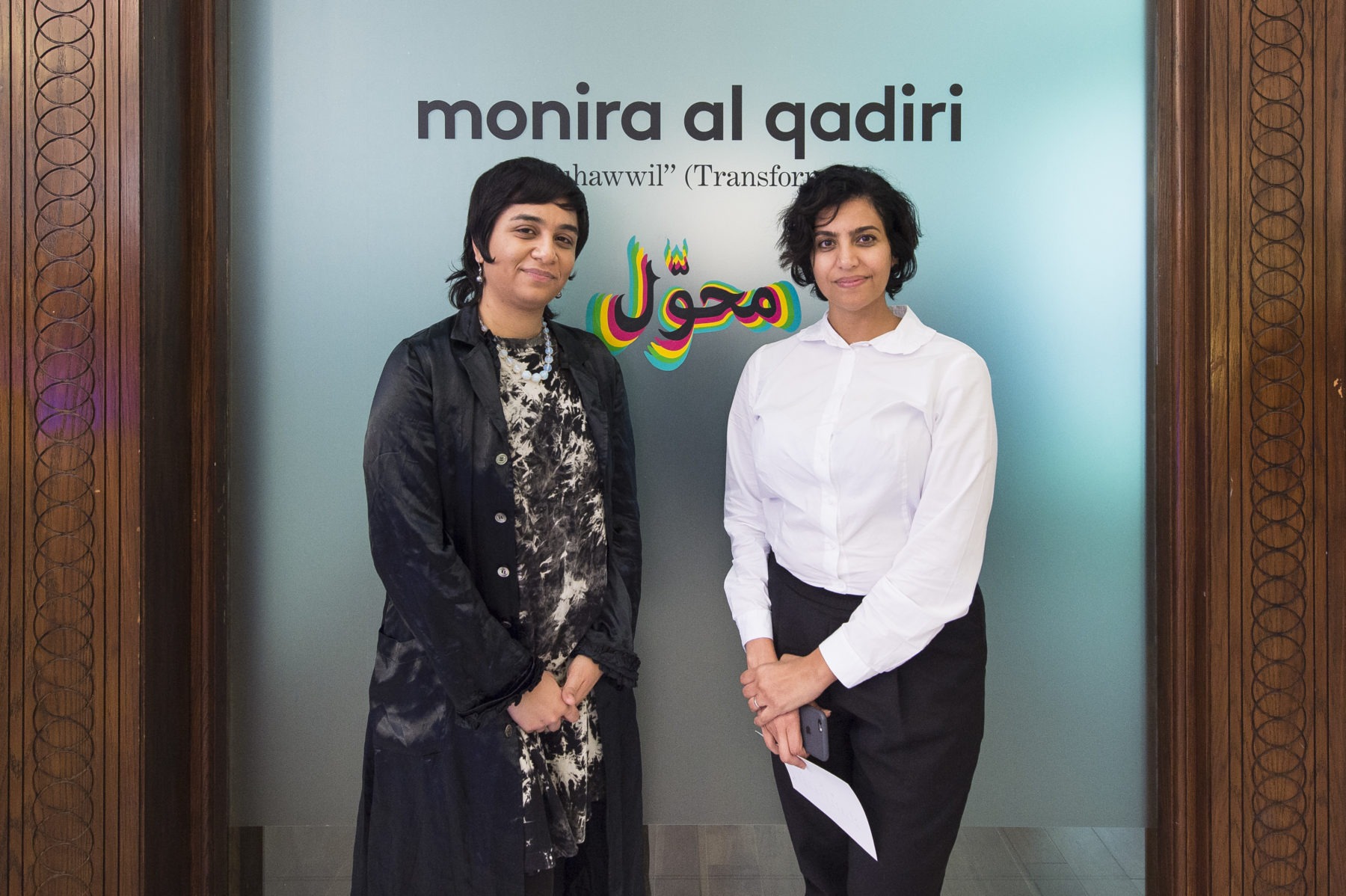
In Muhawwil, Monira reflects on the recent trend of local Islamic charity houses partnering with neighborhood Co-ops to take on the responsibility of turning these buildings into beacons of morality by using rudimentary art to call for piety and decency.
- Curator Maysaa Al-Mumin
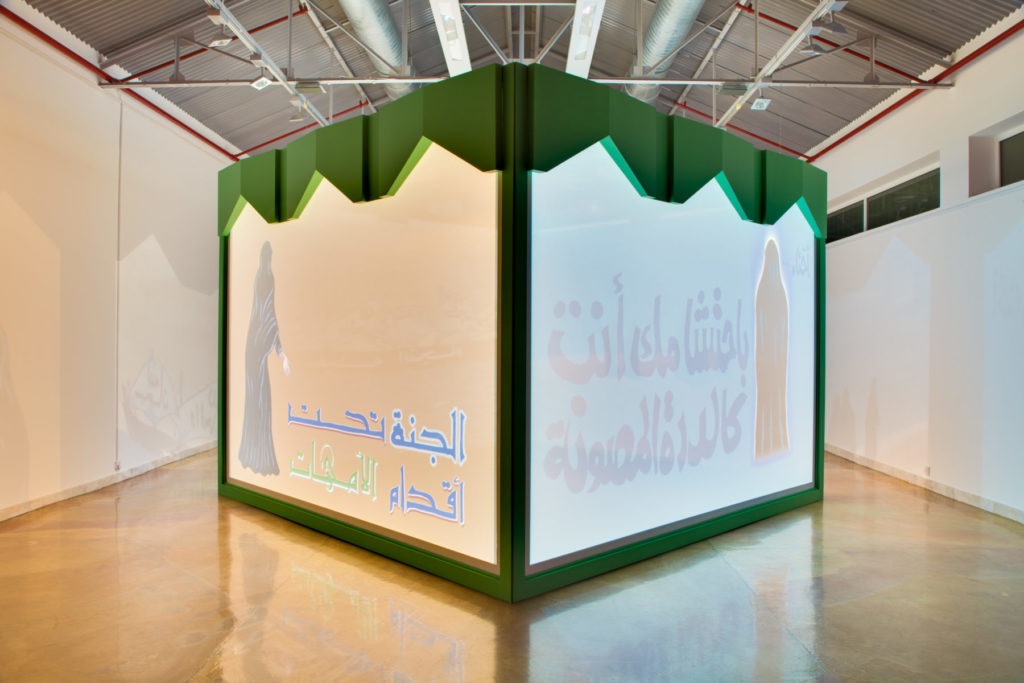
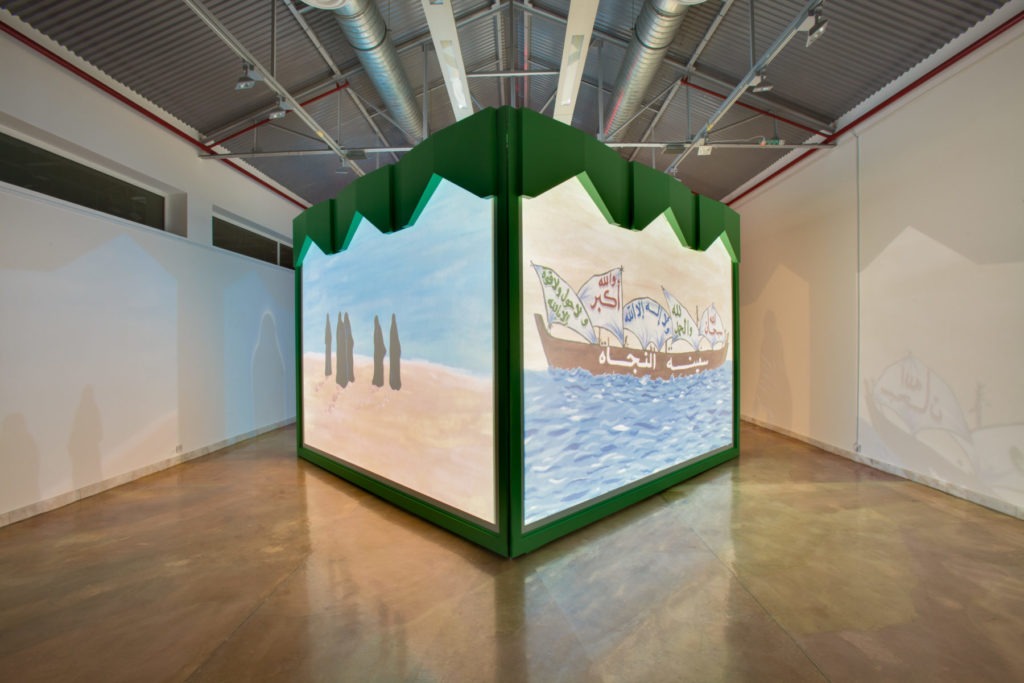
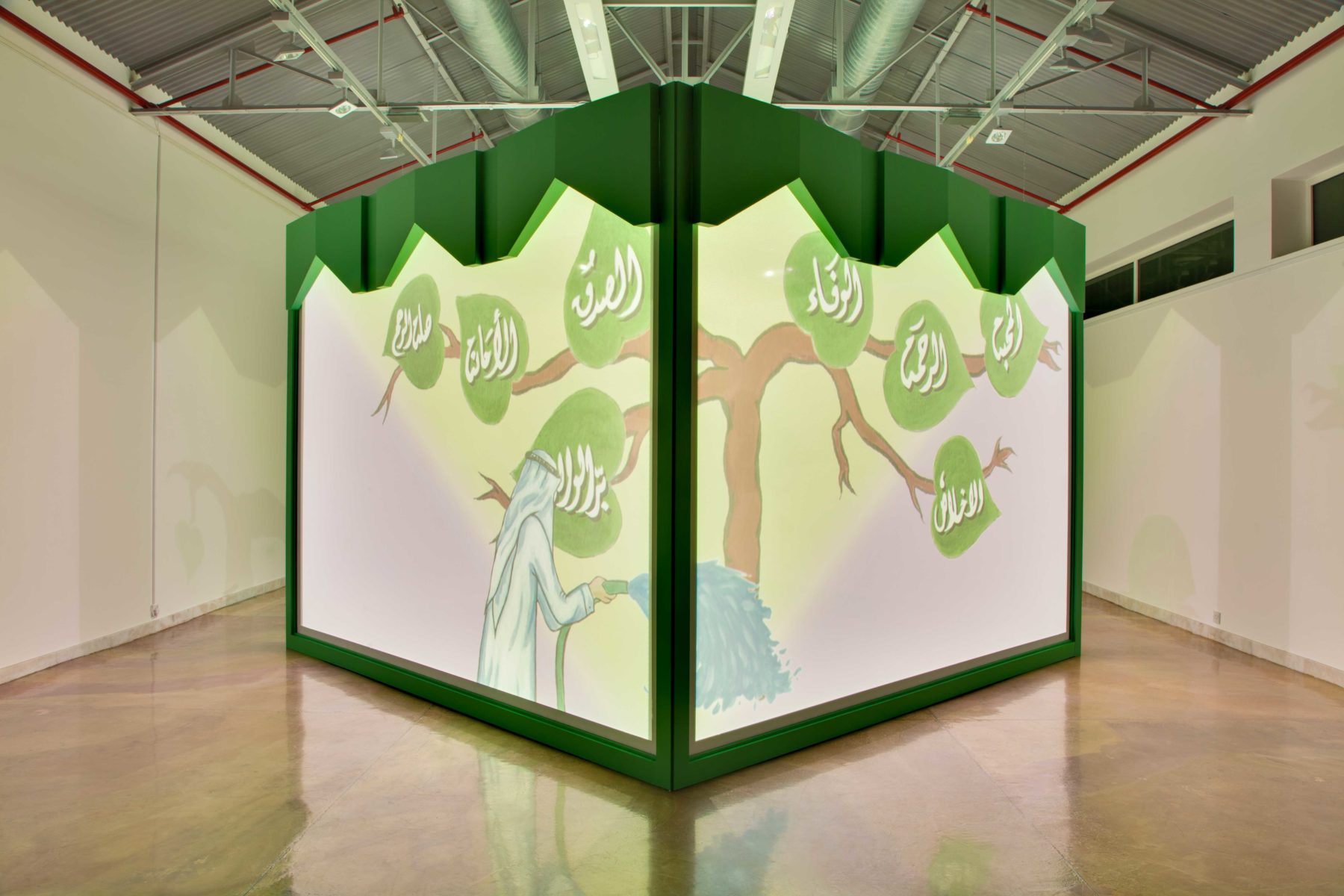
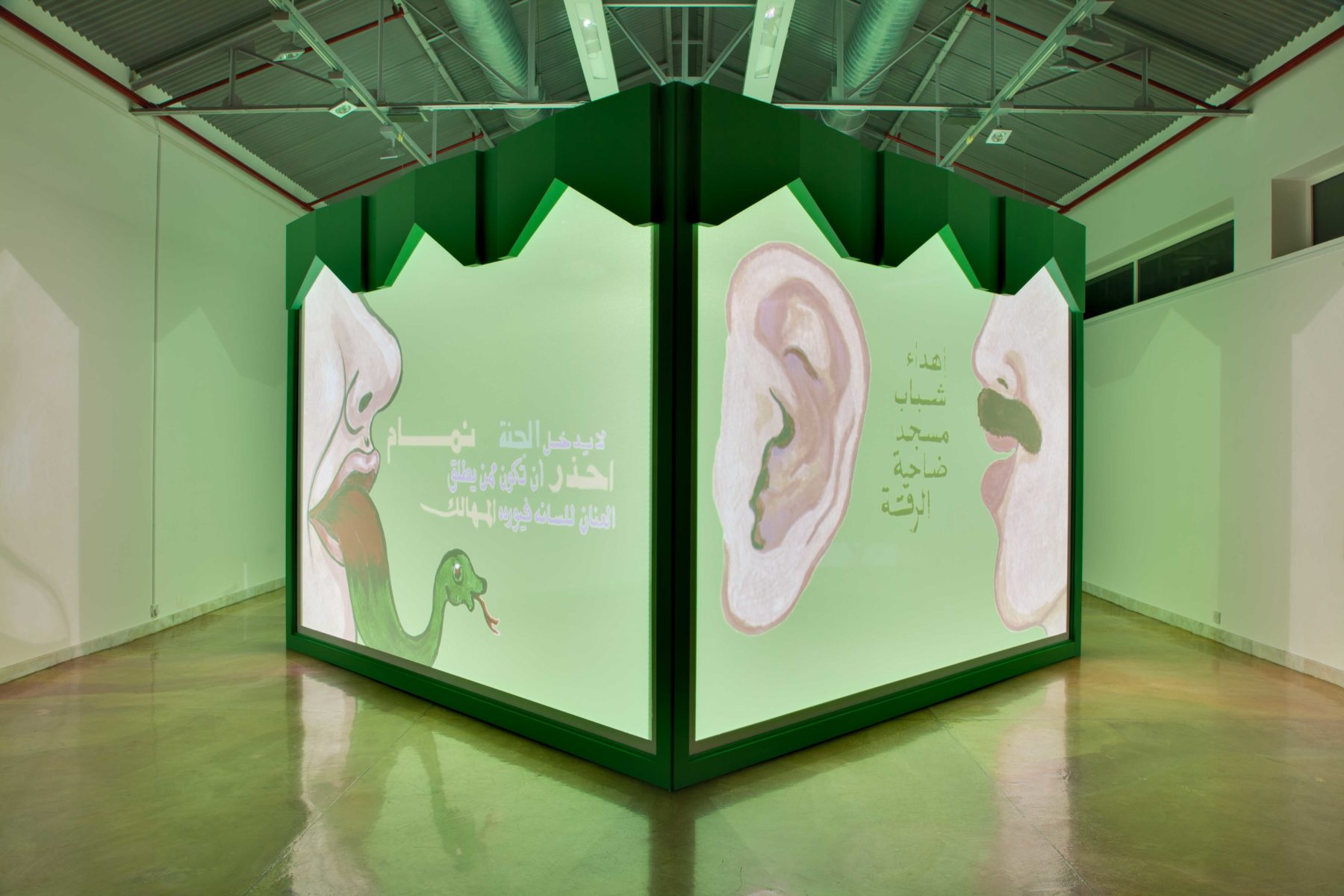
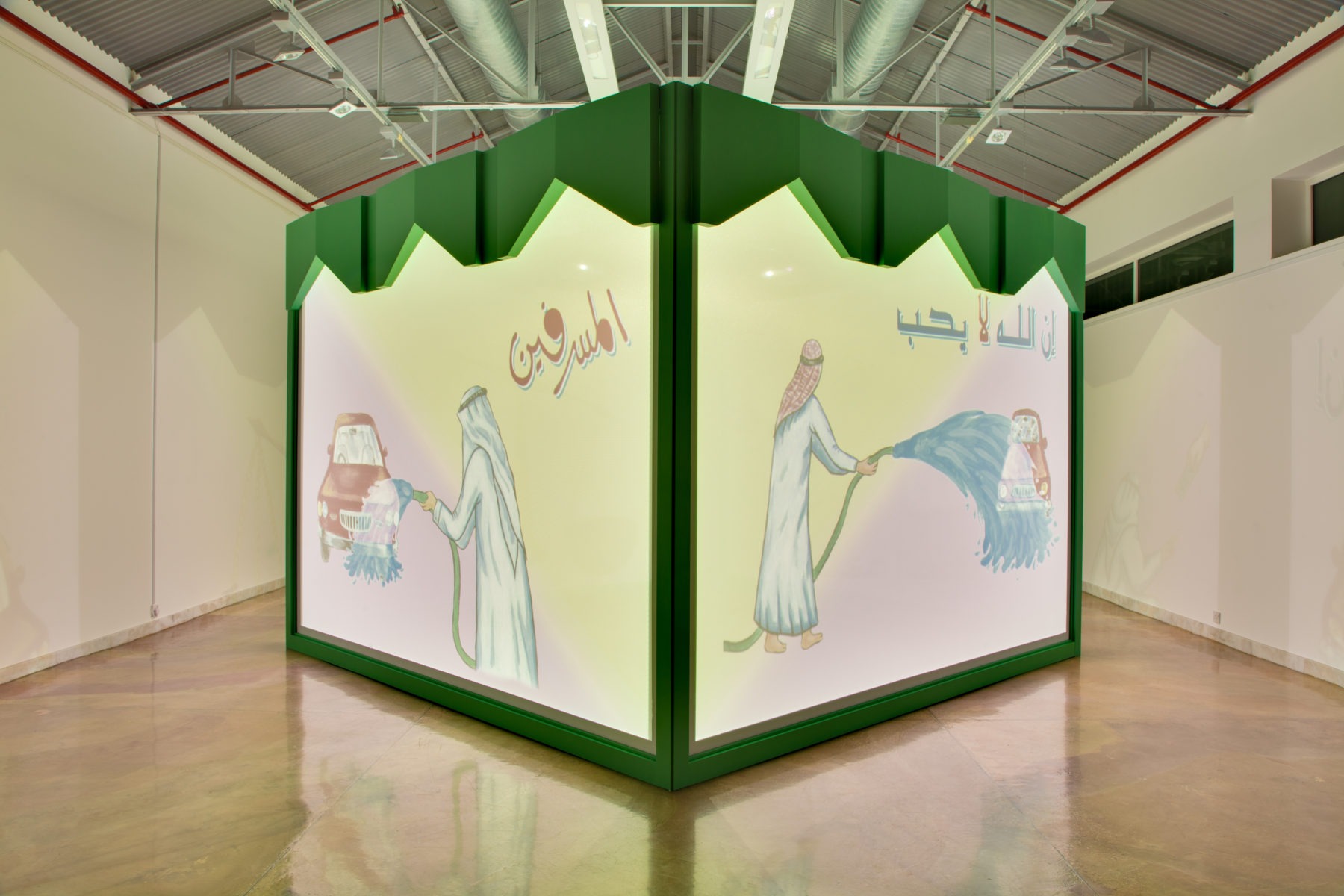
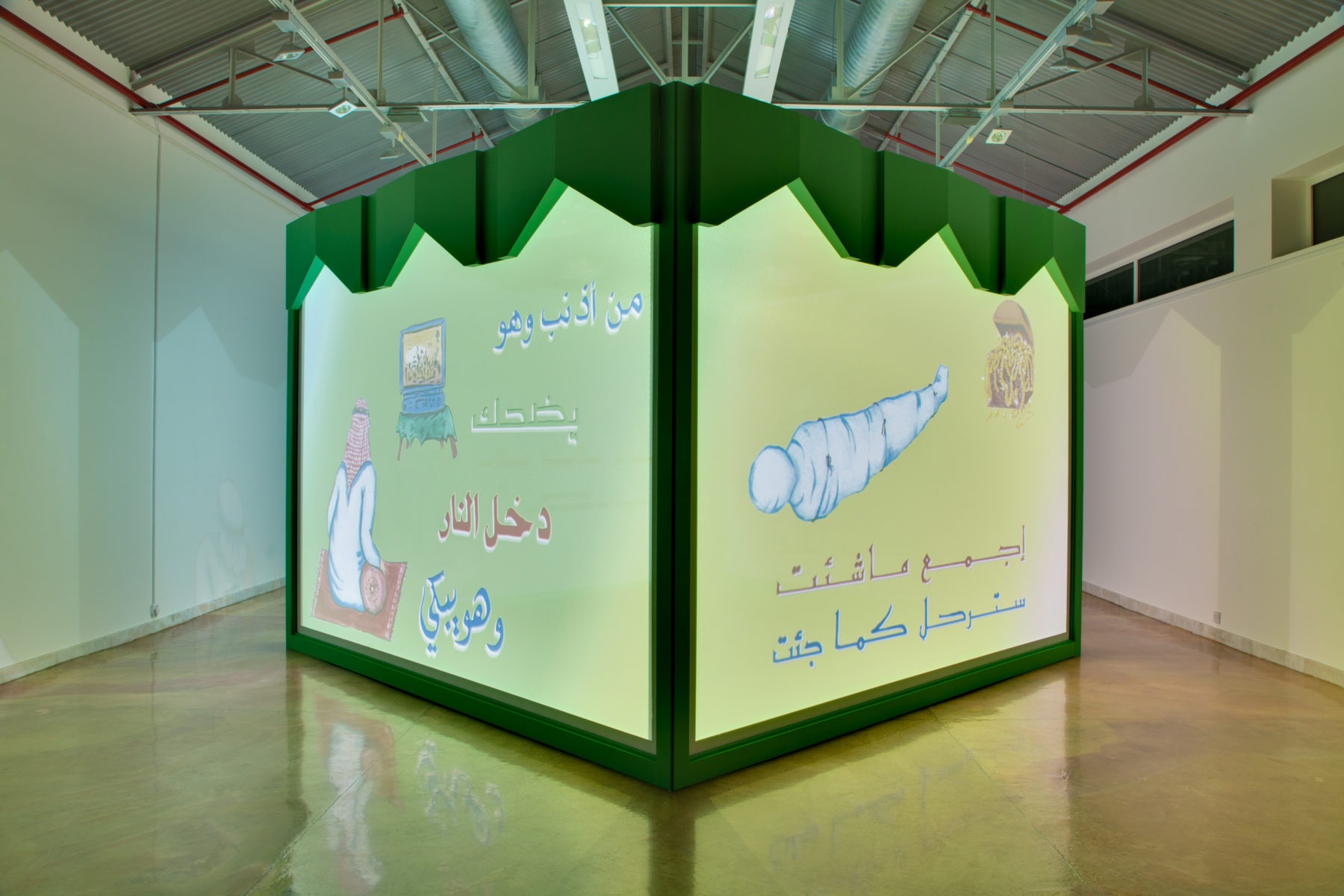
Biographies
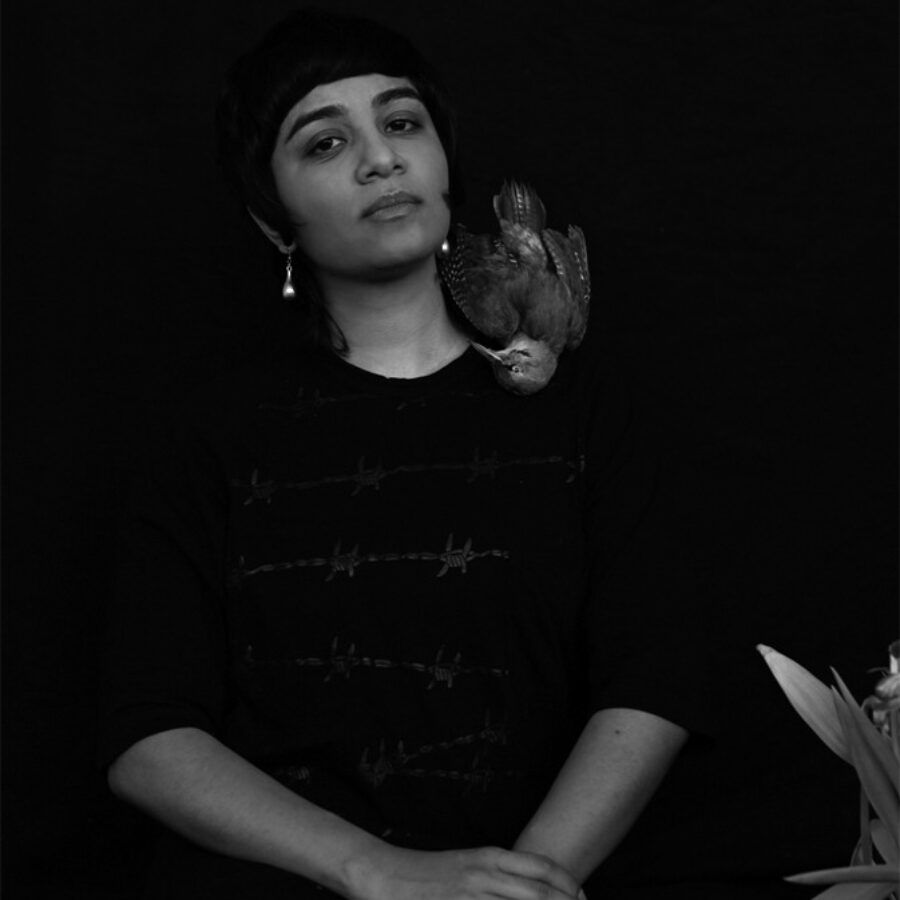
Monira Al Qadiri is a Kuwaiti visual artist who was born in Senegal and educated in Japan.
She received a Ph.D. in inter-media art from Tokyo University of the Arts in 2010, and her research focused on the aesthetics of sadness in the Middle-East stemming from poetry, music, art and religious practices. Her work explores unconventional gender identities, petro-cultures and their possible futures, as well as the legacies of corruption. She is also part of the artist collective GCC.

Maysaa Almumin was born in Kuwait and raised in London where she completed her undergraduate and graduate studies in architecture at the Architectural Association School of Architecture.
She co-founded an architectural practice in London with husband Thomas Modeen and architect couple Paul Brady and Eng Ling Ho, and worked on a number of residential and commercial projects in London, Kuwait, Bahrain and Kosovo. In parallel to her academic career, Maysaa has a research interest in performance set design and film. She is the recipient of funding from the Arab Fund for Arts and Culture and the Doha Film Institute for the completion of her third Qumra supported film J’ai Le Cafard.
Public Programming
Jan. 18, 2018 ― 6 to 8 PM
Opening reception with artists Monira Al Qadiri and Thuraya Al-Baqsami